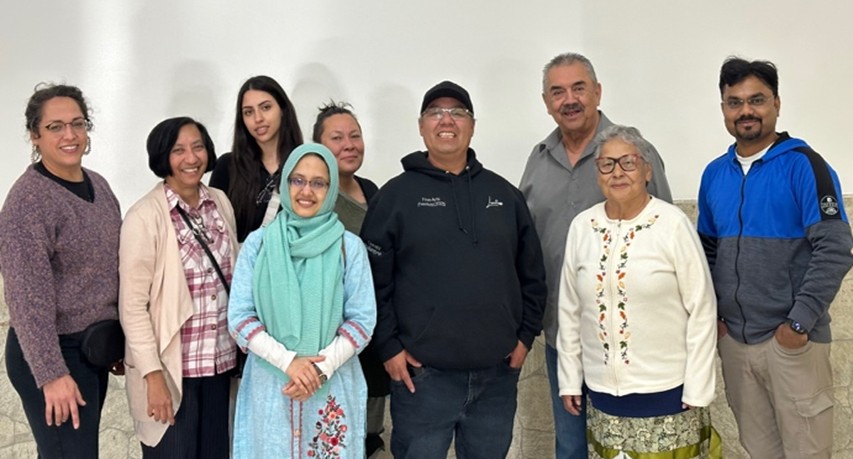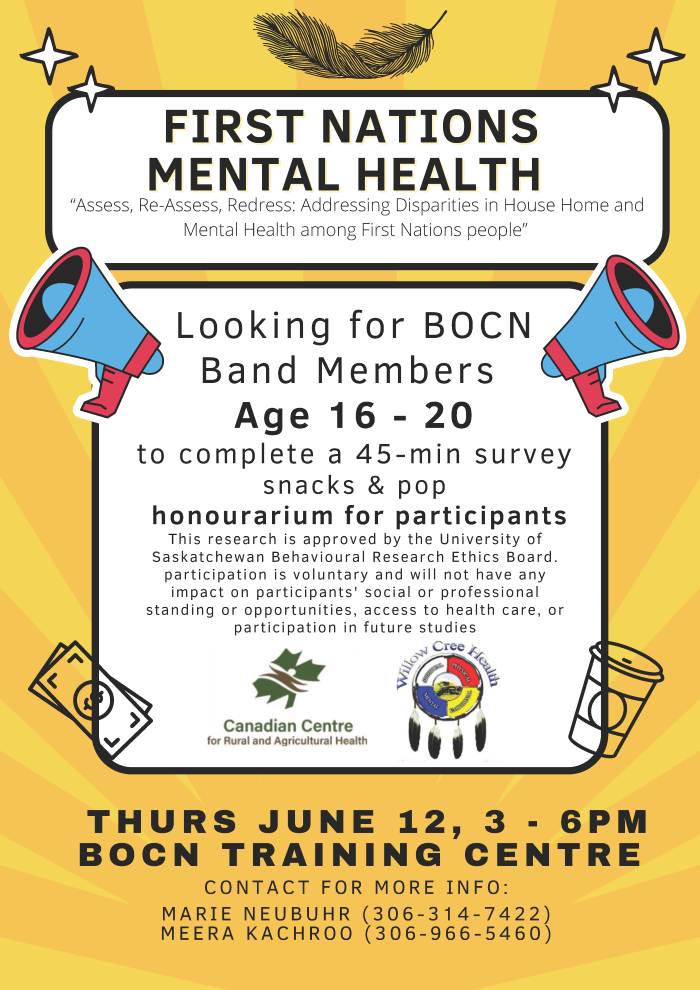
Project Spotlight: First Nations Mental Health Study
The development of mental health interventions was the second objective of the CIHR-funded study: Assess, Redress, Reassess: Addressing Disparities in House, Home, and Mental Health among First Nations People. To date, we have started two interventions: yoga for better mental health, and sharing circles for young people to talk about their experiences, opinions, and knowledge about mental health.

The development of mental health interventions was the second objective of the CIHR-funded study: Assess, Redress, Reassess: Addressing Disparities in House, Home, and Mental Health among First Nations People. To date, we have started two interventions: yoga for better mental health, and sharing circles for young people to talk about their experiences, opinions, and knowledge about mental health. We thank our community research partners for their support of this phase of the project: Warren Seesequasis, Heather Bighead, Marie Neubuhr, Serina Seesequasis, Dawne Thomas, Reynaldo Lindain, Nicole Bird, Deidre Epp, Gerald Ballantyne, Brittany Gardipy, Celeste Boran-Fetch, and Harmony Johnson-Harder.
Yoga

We have started a series of yoga classes from April - June 2025 in two communities, Beardy’s & Okemasis Cree Nation and Little Red River Reserve. As part of this intervention, we developed a video with meditation in two languages, the first of its kind in Cree ( “Grounding Meditation in nēhiyawewin (Cree) and English,” https://www.youtube.com/watch?v=VLZzgwKXGvc ). Classes have been well received in the community halls of the reserve, although the series in Little Red River has been suspended due to the wildfire situation.
Sharing Circles for Young People

Sharing circles are a ceremonial practice in First Nations communities, and may help participants express themselves, feel support, and build community. They are led by Elders and we helped support and facilitate the groups for young people ages 16 – 39. During the circles, people have a chance to contribute their experiences, ideas, memories, and knowledge about mental health. This helped them find support and build connections with other community members and elders, and will contribute to academic knowledge about First Nations culture and health. These circles were very positively received by health care workers, elders, and the community members involved. We convened 7 sharing circles, including participation of 17 women, 11 men aged 16-39 (n = 28) and including also 13 elders.

Youth Survey

In addition, data collection for the First Nations Youth Mental Health Survey (Ages 16-20 years) started in May 2025 in Little Red River Reserve. Twenty-eight youth were participated and completed the surveys. Next event of data collection will be in the community, Beardy’s & Okemasis Cree Nation on June 12, 2025. In this study we hope to gain a better understanding of the factors that influence mental health of First Nations youth living on reserves. Thanks to our community partners, and to RAs Jessica Brar, Humaira Anjum, and Barada Mohanty for their assistance in consenting participants to the study.


